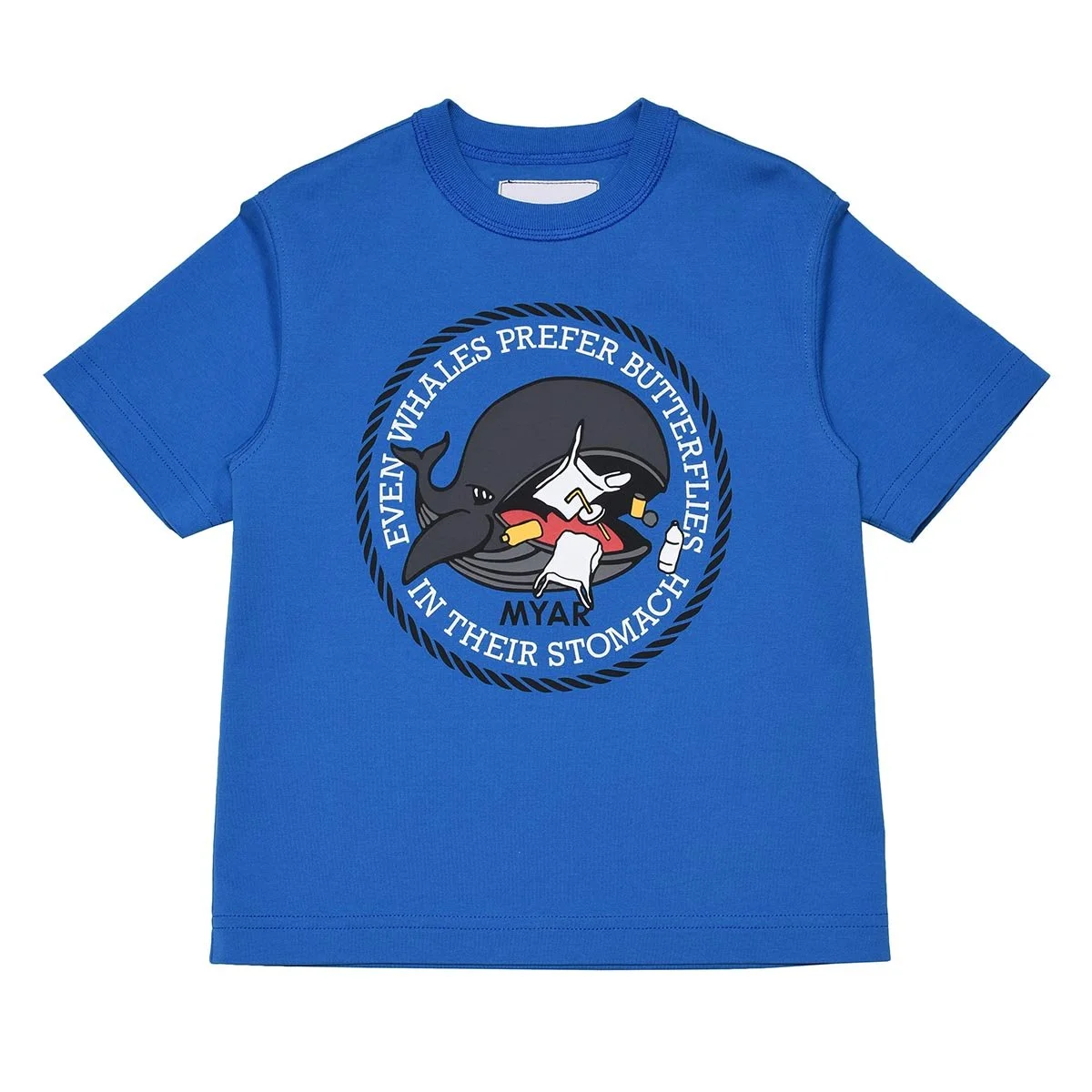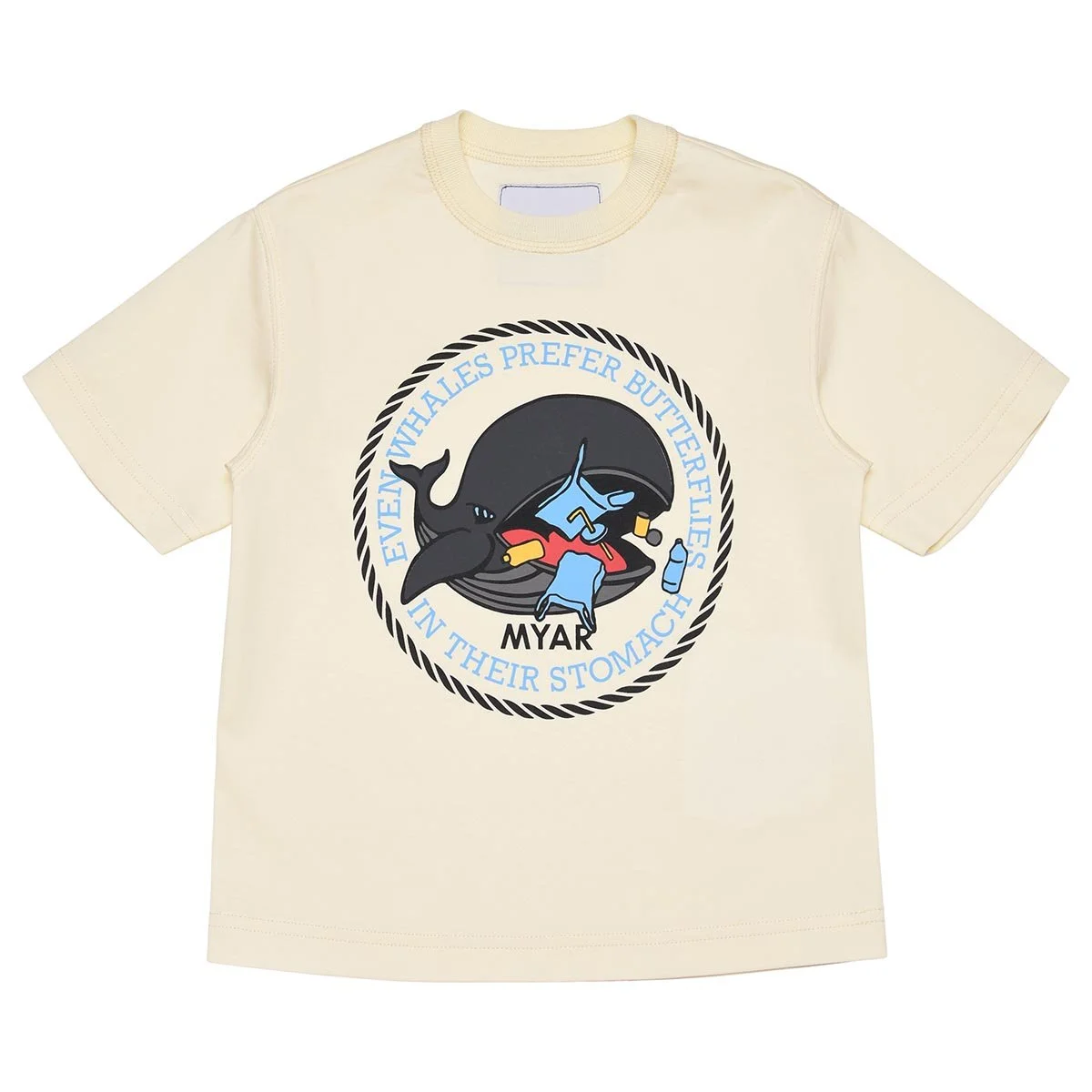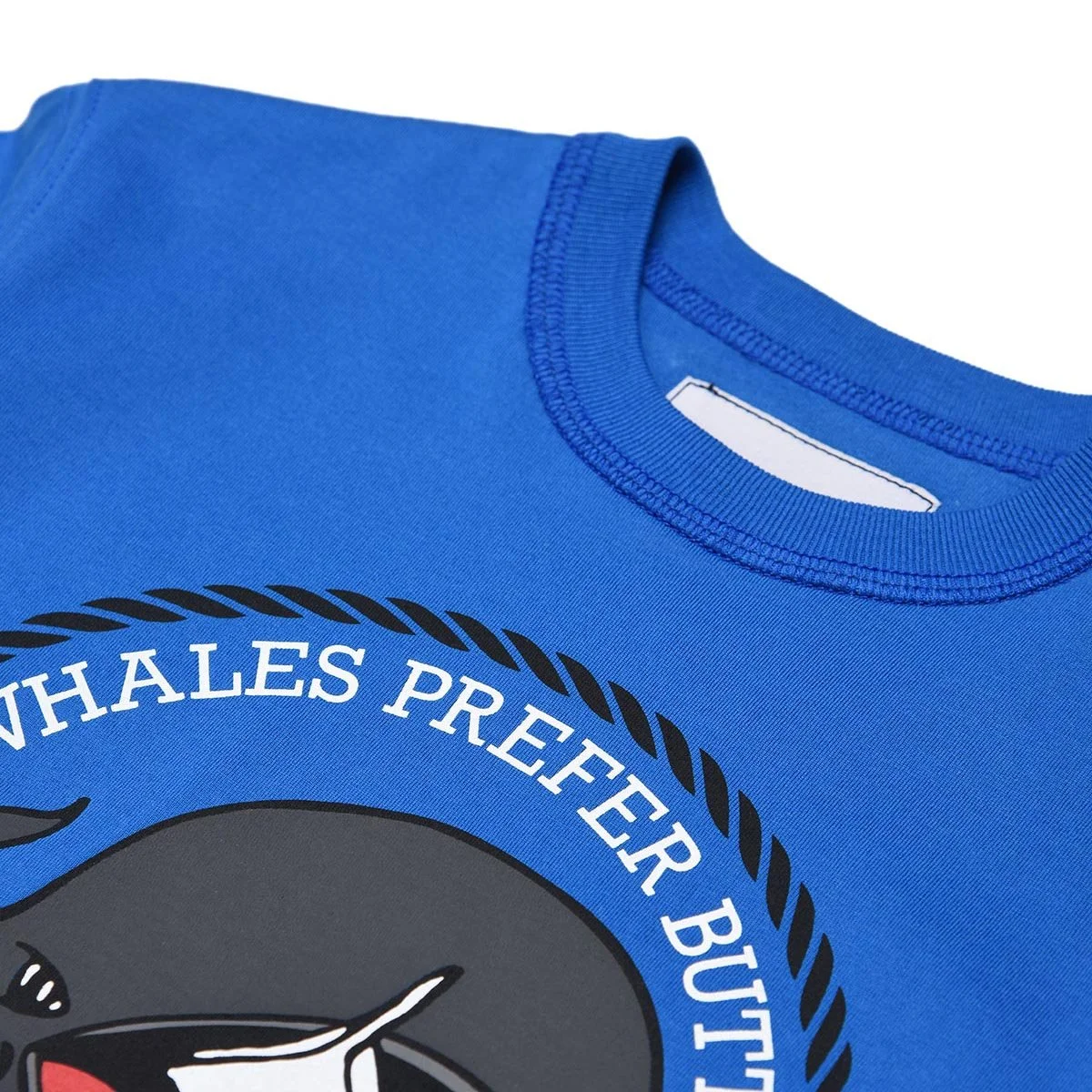MYAR KIDS/SS22 PRESENTS:
MYT5U
MYAR WHALE SHORT SLEEVES T-SHIRT
PRESENT
T-shirt in deadstock jersey.
On the chest a water print with bio-based colour with the words EVEN WHALES PREFER BUTTERFLIES IN THEIR STOMACH (WHALE) which bears witness to MYAR’s commitment to raising awareness in adults and children about the importance of keeping our waters clean and showing the consequences of our actions on living creatures.
Available in an off-white shade and cornflower blue.
EVEN WHALES PREFER BUTTERFLIES IN THEIR STOMACH
Sadly, more and more sea mammals are being found stranded on beaches with huge amounts of plastic in their stomachs.
According to some estimates, between five and 13 million tonnes of plastic waste end up in the seas all over the world each single year.
This plastic waste bobs on the surface of waves, but it also sinks down to the sea bed.
Basically, plastic is everywhere and poses a major threat to sea creatures who ingest it. Cetaceans’ lives may be endangered when they swallow plastic, because the introduction of a foreign body may not only prevent the animal from feeding, blocking its digestive system and limiting its ability to absorb nutrients, but also because plastic might contain and release harmful chemicals and pathogens. What is worse, plastic debris fills their stomachs, causing them to stop eating, but the plastic litter is devoid of nutrients, so the unfortunate creatures become weaker and unresponsive, falling prey to predators or victim to accidents.
In some cases, discarded fishing gear can actually strangle these poor beasts by wrapping around their air passages or binding their limbs, which prevents them from swimming or diving.
Alarmingly enough, sea litter is not just about large plastic objects, but it also includes microplastics: Microorganisms absorb these tiny particles and pass them on to larger animals in the food chain.
REDUCE
CIRCULAR
REUSE
UPCYCLE
MYAR a modern viwe of the past










